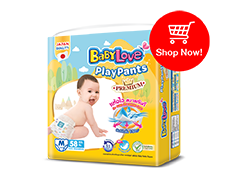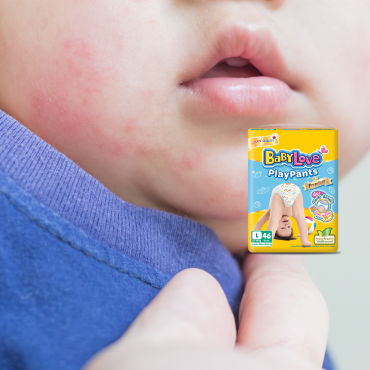IPD, or Invasive Pneumococcal Disease, is caused by the bacteria Streptococcus pneumoniae, also known as pneumococcus. This severe and invasive illness can lead to serious infections such as bloodstream infections, meningitis, or severe pneumonia, potentially resulting in disability or death, especially in young children under 2 years old. During the rainy season, it’s crucial not to overlook this threat. For more information, please read “Dengue Fever in Children: Dangerous Threat from Mosquitoes Moms Need to Watch Out For”
What is Pneumococcus? Let’s Get to Know
It Pneumococcus is a type of bacteria with several strains, but only some can cause severe illnesses leading to IPD.
This bacterium is commonly found in the nasal passages and throat of both children and adults and can spread easily, similar to the common cold. While it usually does not cause symptoms in healthy individuals, it can lead to serious disease in those with weakened immune systems, young children who have not yet developed strong immunity, the elderly, and people with chronic health conditions.
How to Check for IPD Symptoms in Your Little One
Pneumococcal infection symptoms often start with a high fever, similar to common infections, lasting 2-3 days.
- Mild Infections:
- These typically affect the upper respiratory tract and can cause sore throat, ear infections (or middle ear infections), and sinusitis. If not treated properly, the infection may spread.
- Severe Infections:
- Bloodstream Infection: Your child may experience a high fever, fussiness, lethargy, shock, and potentially death.
- Central Nervous System Infection (e.g., Meningitis): Symptoms include high fever, lethargy, vomiting, a stiff neck, bulging fontanelle in infants, and convulsions.
- Lower Respiratory Tract Infection (e.g., Pneumonia): Symptoms include fever, cough, and difficulty breathing. Severe cases may require mechanical ventilation due to respiratory failure.
How to Prevent IPD
- Wash your hands thoroughly before and after activities.
- Cover your mouth and nose when coughing or sneezing.
- Wear a mask to help reduce the spread of germs.
- Avoid crowded places and close contact with sick individuals.
- Get vaccinated against IPD, which is an effective way to prevent the infection.
IPD vaccination Currently, there are two types of vaccines to protect against IPD:
1. Polysaccharide Vaccine: This is used for children over 2 years old who are at higher risk for the disease, as well as for elderly individuals.
2. Conjugate Vaccine: This vaccine is effective in providing immunity for children under 2 years old. Currently, there are three types of Pneumococcal Conjugate Vaccines (PCV) available:
- PCV10: Protects against 10 pneumococcal strains: 1, 4, 5, 6B, 7F, 9V, 14, 18C, 19F, and 23F.
- PCV13: Protects against 13 pneumococcal strains: 1, 3, 4, 5, 6A, 6B, 7F, 9V, 14, 18C, 19A, 19F, and 23F, including coverage of 9V.
- PCV15: Protects against 15 pneumococcal strains: 1, 3, 4, 5, 6A, 6B, 7F, 9V, 14, 18C, 19A, 19F, 22F, 23F, and 33F.
Doctors recommend the pneumococcal conjugate vaccine for children under 5 years old and those with chronic health conditions such as immunodeficiency,
absence of spleen, thalassemia, lung disease, heart disease, liver disease, kidney disease, and diabetes, as they are at higher risk for pneumococcal infections.
- For children starting vaccination at 2 months: The schedule includes doses at 2, 4, 6 months, and a booster between 12-15 months (a total of 4 doses).
- For children starting vaccination after 7 months: The schedule includes 3 doses—at 1st and 2nd doses spaced 2 months apart, and a booster between 12-15 months (a total of 3 doses).
- For children starting vaccination after 1 year: The schedule includes 2 doses spaced 2 months apart.
- For children starting vaccination after 2 years: Only 1 dose is required.
A heartfelt thank you for useful information from Ms. Piyarat Ann Lertbannaphong, M.D., the specialized pediatrician.
When it comes to diaper changes, trust the new and improved BabyLove PlayPant Premium! This innovative formula offers up to 150% faster absorption with its Super Dry Diamond Sheet, keeping your little one feeling dry and comfortable instantly. No more dampness, just dryness and comfort. Remember to change diapers every 2-3 hours for optimal hygiene and care.
Experience premium-quality diapers at an affordable price at the BabyLove Online Shop. Click here to shop now!
*Compared with the previous formula.
Crated At 05/08/2024






















